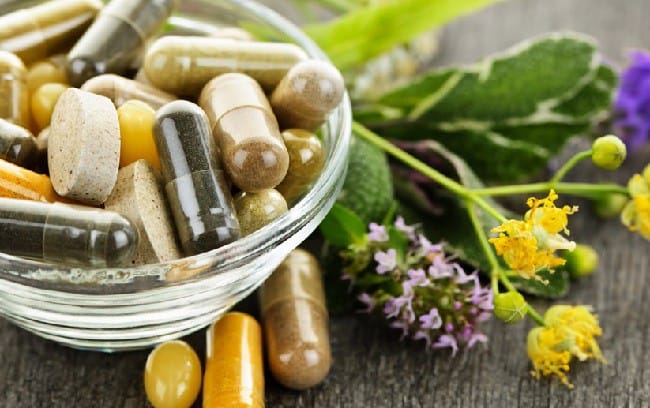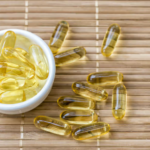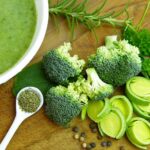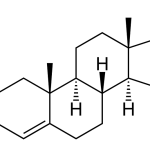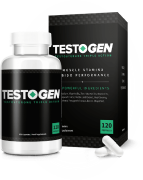In today’s world, there are supplements derived from plants that have been used in traditional medicine for centuries. Among these plant-based options, Tribulus terrestris stands out as a known choice. It is believed to have health benefits, including blood sugar and cholesterol reduction, hormone regulation, improved sexual function and libido, and more. Many people are curious about the effectiveness of Tribulus terrestris in boosting testosterone levels. This detailed article aims to provide an understanding of the plant by discussing its definition and the significant advantages it offers in relation to testosterone.
Table of Contents
Tribulus Testosterone: What is Tribulus terrestris?
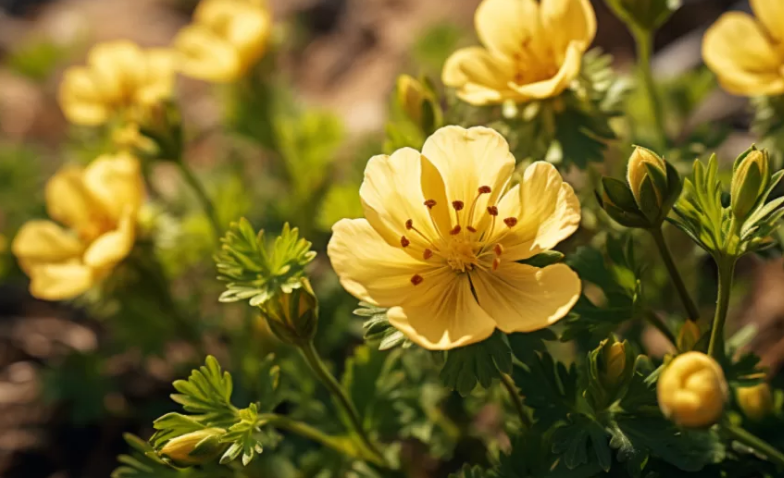
Tribulus terrestris, also known as puncturevine or caltrop, belongs to the Zygophyllaceae family and is a type of plant found across Asia, Europe, Africa, and Australia. Traditionally, this growing flowering plant has been used in medical systems like Ayurveda and Traditional Chinese Medicine. Its fruits, leaves, and roots are commonly utilized for various purposes.
Tribulus terrestris contains compounds such as flavonoids, glycosides, steroidal saponins, and alkaloids. These compounds are believed to offer health benefits associated with Tribulus terrestris.
Dietary supplements
In recent years, Tribulus Terrestris has gained popularity as a supplement among athletes and bodybuilders. Tribulus is often marketed as a product that can boost testosterone levels, claiming to enhance muscle strength, endurance, and athletic performance. It is also promoted as a means to improve experiences by increasing libido and sexual function.
When used as a supplement, Tribulus terrestris is commonly available in the form of capsules, tablets, powders, or extracts. These supplements typically contain extracts derived from the plant’s fruits, leaves, or roots.
In medicine systems like Ayurveda and Traditional Chinese Medicine, Tribulus terrestris has a history of use. It has been utilized for purposes with an emphasis on improving sexual function. Both men and women have turned to it as an aphrodisiac and for addressing dysfunctions.
Moreover Tribulus terrestris has been traditionally employed to support fertility and treat disorders, in addition to promoting urinary system health. It has been believed to have benefits for managing conditions such as tract infections, kidney stones, and bladder problems.
The connection between Tribulus terrestris and testosterone levels is an area of interest in research. However, our current understanding of the effects of tribulus on testosterone remains limited. Let’s delve deeper into the existing research findings. For instance, there have been studies conducted on animals that suggest Tribulus terrestris may have the potential to increase testosterone levels.
These studies have shown effects on testosterone production and sexual function in animal subjects. However, when it comes to studies investigating the impact of Tribulus terrestris on testosterone levels, the results have been mixed.
It is important to note that factors control the hormone testosterone. Factors such as age, health status, and lifestyle can all influence testosterone levels. While Tribulus terrestris has been marketed as a booster for testosterone, the scientific evidence supporting this claim is currently limited and inconsistent.
That being said, there are benefits associated with testosterone that have been linked to Tribulus terrestris. It’s important to remember that individual responses may vary, and further research is needed to confirm these effects conclusively.
Some of these advantages attributed to Tribulus terrestris in relation to testosterone include an increase in desire and improved sexual function, possible cardiovascular benefits, an uplift in mood, and enhanced mental well-being.
As always, it is recommended to consult with a healthcare-qualified practitioner before incorporating any new dietary supplements or medications into your daily routine. These experts can offer recommendations based on your health condition and requirements.
Does Tribulus terrestris boost testosterone?
The influence of Tribulus terrestris on testosterone levels has been a topic of discussion and scientific investigation for a period of time. Currently, the research findings are varied. While some studies and individual accounts suggest that Tribulus terrestris may enhance testosterone levels, others do not find any effects.
If you are considering using Tribulus for its impact on testosterone levels, it is advisable to consult with a doctor or healthcare professional. This will allow you to receive guidance based on your health needs and circumstances. Moreover, these experts will help you make decisions. Effectively monitor your hormone levels.
The subject at hand revolves around the advantages of Tribulus in aspects of human health. Specifically, it has historically been used to improve libido and sexual function, gaining recognition as an aphrodisiac. Although scientific evidence regarding its effects remains limited and contradictory, certain studies suggest promising benefits.
Research indicates that Tribulus terrestris may positively affect libido, or sexual desire. For instance, a small study involving women with desire showed that those who consumed Tribulus terrestris experienced improvements in their desire compared to the placebo group. Moreover, there have been suggestions of benefits associated with Tribulus terrestris. Some studies propose that it could potentially have an effect on lowering blood pressure. This might be attributed to compounds found in Tribulus terrestris, which could induce relaxation in blood vessels, resulting in a decrease in blood pressure.
Furthermore, researchers have looked into the impact of Tribulus terrestris on cholesterol levels. Several studies have suggested that it might have an influence on profiles by reducing overall cholesterol levels, triglycerides, and LDL cholesterol.
Additionally, Tribulus terrestris contains compounds known for their antioxidant and anti-inflammatory properties. These properties hold the potential to provide benefits by reducing stress and inflammation, both of which contribute to the development of cardiovascular diseases.
Furthermore, Tribulus terrestris has been associated with effects on mood and mental well-being. In cultures, it has traditionally been used to promote wellness and enhance mood. Animal studies have indicated that Tribulus terrestris may possess mood-enhancing effects. Its bioactive compounds can potentially impact neurotransmitters and hormonal systems involved in regulating mood.
Facts about Testosterone
Testosterone is an androgen hormone belonging to a group of hormones. While it is primarily produced in the testicles of males, smaller amounts are also produced in the ovaries and adrenal glands of females. Testosterone, a hormone for the development and maintenance of sexual characteristics, plays a significant role in both men and women.
It’s important to note that testosterone levels naturally decrease as we age, affecting both men and women. When testosterone levels drop significantly, it can lead to a condition known as hypogonadism. This condition is primarily seen in men. Is characterized by symptoms like muscle weakness, difficulty achieving or maintaining erections, reduced sexual drive, and fatigue. In some cases, healthcare professionals may consider hormone replacement therapy as an option.
The significance of testosterone extends to processes in the body for individuals of all genders. It impacts development, reproductive function, libido, sexual performance, muscle and bone health, metabolism and body composition, mood regulation, cognitive function, and red blood cell production.
Normal total testosterone levels can vary based on factors such as age, gender, and specific laboratory reference ranges. Typically, for adult males, the normal range falls between 300 and 1000 ng/dl (nanograms per deciliter).For adult men, the typical range of free testosterone levels is between 9 and 30 ng/dL.
In adult women, the normal range for testosterone is usually between 15 and 70 ng/dl, while free testosterone levels typically range from 0.3 to 1.9 ng/dL.
Related: Testogen, Prime Male, Testo Prime
Effects of Low Testosterone
Testosterone, also known as low T or testosterone deficiency, can have various impacts on both physical and mental well-being. Individuals with high levels of testosterone may experience a variety of symptoms, including changes in function (such as a decrease in libido and alterations in sexual performance) decreased energy levels and feelings of fatigue shifts in body composition (such as weight gain and changes in physical appearance) reduced motivation and overall sense of well-being, mood swings, and cognitive effects (including irritability, feelings of sadness or depression, difficulties with concentration, and memory problems), as well as decreased bone density.
Tribulus Testosterone: Summary
Tribulus terrestris is a plant that has been used medicinally for a long time. While it has health benefits, it’s important to note that many of these advantages have only been studied in animals. If you are considering using Tribulus to enhance your testosterone levels, it is recommended that you consult with your healthcare provider first. This plant has the potential to offer advantages and drawbacks. They can provide information about both.



